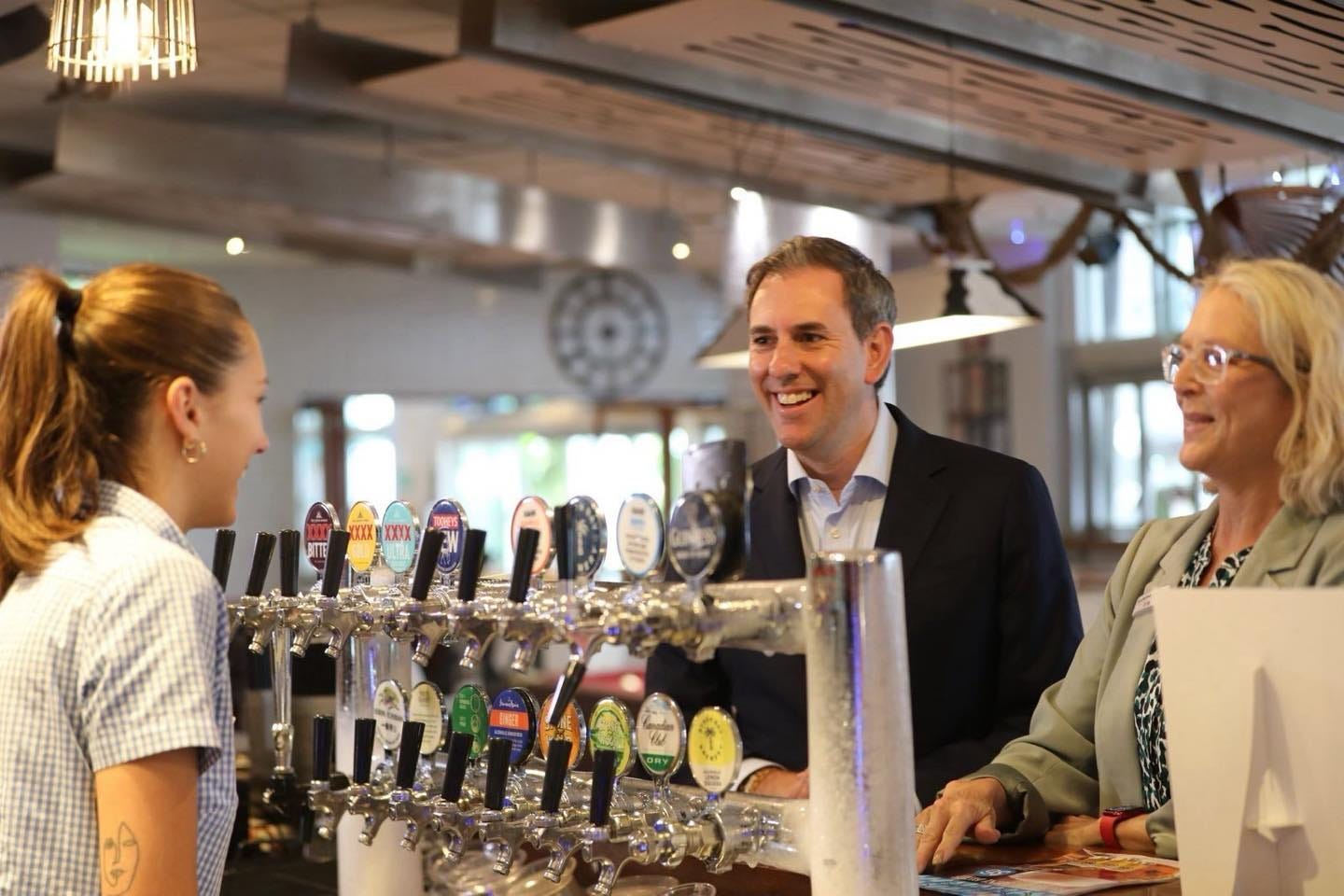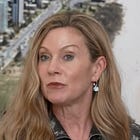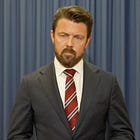Australia Pushes Critical Minerals Trade as Trump Meeting Looms, AUKUS Review Nears Completion
This piece is freely available to read. Become a paid subscriber today and help keep Mencari News financially afloat so that we can continue to pay our writers for their insight and expertise.
Today’s Article is brought to you by Empower your podcasting vision with a suite of creative solutions at your fingertips.
Australian Treasurer Jim Chalmers said Thursday his country wants to become a “reliable supplier” of critical minerals to the United States, framing the trade relationship as mutually beneficial ahead of Prime Minister Anthony Albanese’s White House meeting with President Donald Trump next week.
Chalmers spoke at a press conference in Washington and said that Australia is in a unique position to meet American demand for rare earth elements and other important resources at a time when China has made it harder to export these materials. The treasurer will meet with Kevin Hassett, the director of the National Economic Council, on Thursday night to talk about the problem. Albanese is supposed to meet with Trump on Monday.
Chalmers said, “Australia has so much of what the world wants, when they want it, whether it’s critical minerals, the skills of our people, or the strength of our economy.” “Things are going well for us right now, even though a lot of bad things are happening around the world.”
Truth matters. Quality journalism costs.
Your subscription to Mencari directly funds the investigative reporting our democracy needs. For less than a coffee per week, you enable our journalists to uncover stories that powerful interests would rather keep hidden. There is no corporate influence involved. No compromises. Just honest journalism when we need it most.
Not ready to be paid subscribe, but appreciate the newsletter ? Grab us a beer or snag the exclusive ad spot at the top of next week's newsletter.
The meetings happen while Australia deals with conflicting demands from China, its biggest trading partner, and the United States, its closest security ally. Scott Bessent, the Secretary of the Treasury, said on Wednesday that if China goes ahead with its rare earth export controls, the world will have no choice but to cut ties with China.
Chalmers didn’t directly agree with that assessment. He only said, “Australia’s interests are best served by more trade, not by more trade barriers.”
The treasurer wouldn’t say if Albanese would get a trade deal at the White House meeting on Monday, but he did say that American companies “desperately need critical minerals, and Australia is very well placed to service that need.”
The United States currently charges Australia a 10% tariff, which is the lowest rate for any country in the world. Chalmers said the tariffs were “unnecessary and unwarranted,” but he wouldn’t say if he thinks they will be taken down. The US has more trade with Australia than it does with other countries.
Pat Conroy, the Minister of Defence Industry, went to Washington with Chalmers. He said that the trilateral AUKUS security partnership has led to $150 million in technology exports to the US and UK without needing a licence in the past year.
Since it started in October 2024, the deal has handled more than 1,200 transactions with almost 500 registered Australian companies. It lets Australian companies export defence technology without needing separate licences.
“One Australian company signed a deal with Northrop Grumman for radar technology,” Conroy said. “They want to move the IP and designs to Australia in two years so they can start building it. Because there was no need for a licence, it only took two weeks instead of two years.
During his trip to Washington, Conroy met with leaders from the Navy, Air Force, and Army. He said that everyone he talked to was very positive about AUKUS continuing under the Trump administration. The minister said that the congressional leaders he talked to were “evangelical about the importance of AUKUS.”
The Trump administration is looking over the AUKUS deal, which will give Australia submarines that run on nuclear power. Richard Marles, the Deputy Prime Minister, told Australian media on Thursday that the review’s release is “imminent.” However, Conroy would not say if it would be done before Albanese’s visit to the White House.
“Security is sure to be talked about, and I would guess that AUKUS would be one of the topics,” Conroy said when asked what the two leaders might talk about.
Chalmers signed the first tax treaty between Australia and Ukraine with Ukrainian Finance Minister Sergii Marchenko before the press conference.
Chalmers said, “We salute and support the incredible bravery and courage of the Ukrainian people in the face of Russian aggression.”
According to Conroy, Australia has given Ukraine more than $1.3 billion in military aid, making it the largest non-NATO contributor to the country’s defence. He said that most of the promised Abrams tanks have been delivered and that the rest “are on the way and will arrive soon.”
Conroy disagreed with the idea that Australia needs to spend more on defence to meet U.S. demands for allies to share the load more evenly. He said that using NATO’s way of measuring, Australia spends 2.8 percent of its GDP on defence.
Conroy said, “That puts us higher than anywhere else in Europe except Poland and the Baltic States and higher than any other Indo-Pacific partner of the United States.”
The number is higher than the usual two percent target because it includes different types of budgets than Australia’s standard measurement. According to Conroy, the 2024 National Defence Strategy promised “the biggest increase in defence spending that has ever happened in Australia in peacetime.”
He mentioned other contributions besides money, such as the Submarine Rotation Force-West, which sends four U.S. attack submarines to HMAS Stirling in Western Australia. Conroy said that the deal gives American forces “a direct entry point into the Indian Ocean” and 1,800 days of maintenance each year.
He said, “That will add the equivalent of two to three more submarine deployments a year for the U.S. Navy.”
When asked about reports that Australia might send troops to an international stabilisation force in the Middle East, Conroy said, “No one has asked Australia to do that.”
He said, “It’s normal for our military to talk to other militaries about planning for emergencies.” “We’ll think about it if we get a request, and the government will make a choice.”
This week, Michele Bullock, the Governor of the Reserve Bank of Australia, said she was worried about “substantial budget deficits through the decade.” Chalmers defended his government’s fiscal record.
The treasurer said that this was “the biggest positive turnaround in the budget in a single parliamentary term, in nominal terms, of any government ever.” He said that his government has cut the debt it took over from the last Liberal government by $188 billion, which has saved $60 billion in interest on that debt.
Chalmers said, “We gave two surpluses, and in the third year, our deficit is only a fifth of what we got from our political opponents.”
He said that the Reserve Bank’s most recent interest rate decision had nothing to do with government spending. He also said that “public demand has not contributed to GDP growth at any point this year, in 2025.”
“We know there’s more work to be done on the budget, but we ask everyone, even our political opponents, to admit that the budget is in much better shape than when we got it,” he said.
Chalmers said that his weeklong trip to Washington, New York, and Seoul was necessary “at a time of great uncertainty in the global economy.”
He said, “Even though there was a big de-escalation in the Middle East this week, trade tensions rose. This is just another reminder of how unstable, uncertain, and unpredictable the global economy is right now.”
Before going to Seoul for APEC next week, the treasurer will go to meetings with the G20, the International Monetary Fund, and the World Bank. He plans to talk about why people should invest in Australia while he’s in New York for the next two days.
Chalmers said that Australia sees climate change as “a risk, not just to the environment, but to the global economy.” He said that this view is shared by trading partners who make up 80 to 90 percent of the world’s GDP. He didn’t want to talk about Trump’s recent comments to the UN calling climate change a hoax or say how Australia would vote on a new global maritime emissions regime that will be decided in London on Thursday.
Chalmers said, “Australia does what it can responsibly do to help the world fight climate change.”
When asked if the US might pressure Australia to pick a side between American and Chinese interests, especially when it comes to critical minerals, Chalmers said that his government works with major trading partners “in good faith and in Australia’s national economic interests.”
He said, “I think people here in Washington, D.C. know that Australia has worked hard to stabilise that important economic relationship with China.” “We do a lot together and can do even more together, especially when it comes to important minerals.”
Sustaining Mencari Requires Your Support
Independent journalism costs money. Help us continue delivering in-depth investigations and unfiltered commentary on the world's real stories. Your financial contribution enables thorough investigative work and thoughtful analysis, all supported by a dedicated community committed to accuracy and transparency.
Subscribe today to unlock our full archive of investigative reporting and fearless analysis. Subscribing to independent media outlets represents more than just information consumption—it embodies a commitment to factual reporting.
As well as knowing you’re keeping Mencari (Australia) alive, you’ll also get:
Get breaking news AS IT HAPPENS - Gain instant access to our real-time coverage and analysis when major stories break, keeping you ahead of the curve
Unlock our COMPLETE content library - Enjoy unlimited access to every newsletter, podcast episode, and exclusive archive—all seamlessly available in your favorite podcast apps.
Join the conversation that matters - Be part of our vibrant community with full commenting privileges on all content, directly supporting The Evening Post (Australia)
Catch up on some of Mencari’s recent stories:
It only takes a minute to help us investigate fearlessly and expose lies and wrongdoing to hold power accountable. Thanks!








